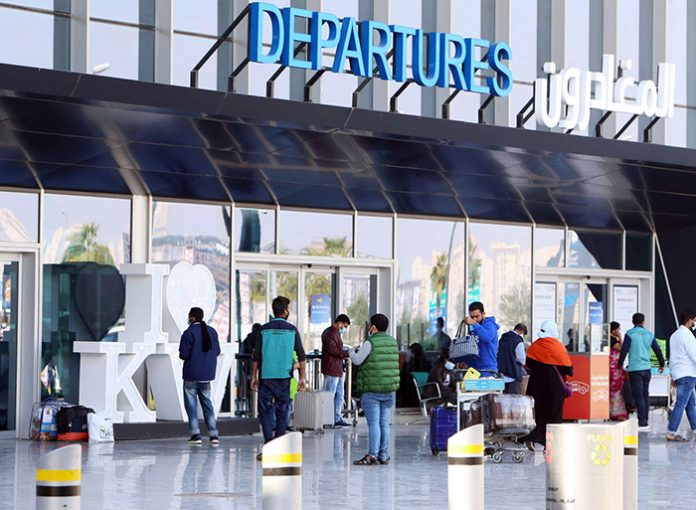A new labor market report by the government shows that a total of 67,809 workers, including 17,398 domestic workers belonging to various nationalities left Kuwait in the first-quarter of 2021. Indians topped the list, with 21,341 leaving the country of whom 10,169 were domestic workers. The second largest number of expatriates leaving Kuwait were Egyptians, who accounted for 11,135 workers, followed by 6,136 Bangladeshis and 2,543 Filipinos.
The total number of workers in the labor market, until the end of last March, was 1,536,033 in the private sector and 411,464 in public sector. As for the domestic labor sector, the total employment until last March was 651,265 workers, a decrease of 17,398 compared to the labor market statistics recorded at the end of last year.
Kuwaitization and retrenchments in the public sector along with business closures and production cuts in manufacturing during the COVID-19 crisis, left many expatriate workers jobless or facing extended layoffs without salaries. Many of these workers eventually decided to ‘call it a day and return home for good. A report on the labor market found that nearly 200,000 expatriates had left Kuwait in the one year since March 2020.
Adding to the woes of expatriates, the Public Authority for Manpower stopped renewing visas of expatriates over 60 years of age if they did not possess a university degree or diploma. More than 42,000 foreigners affected by the PAM decision are said to have left the country since the law was announced.
Many of those who left the country due to job losses said they had no choice other than to return back home. Most of these expatriates had been gainfully employed in Kuwait for many years and had set up a life in this country with their families. Suddenly faced with the prospect of a job loss, salary cuts or extended layoffs without pay, they had no other alternative than to leave the country for good.
One worker leaving Kuwait with his family after spending nearly a decade in this country, said “In April, I was informed by the company that they could no longer afford to pay my salaries, as there was no business because of the lockdown and curfews. They said I would be informed when the business resumed operations and until then I could remain at home. But how could I stay in Kuwait without a salary to pay the rent, or buy food for the family,” asked the man.
The government ensured that public sector employees continued to receive their salaries during the lockdown period; however, there was no such protection or social nets for workers in the private sector to rely on. Left to fend for themselves during the pandemic, many of them were virtually forced out of the country.

















